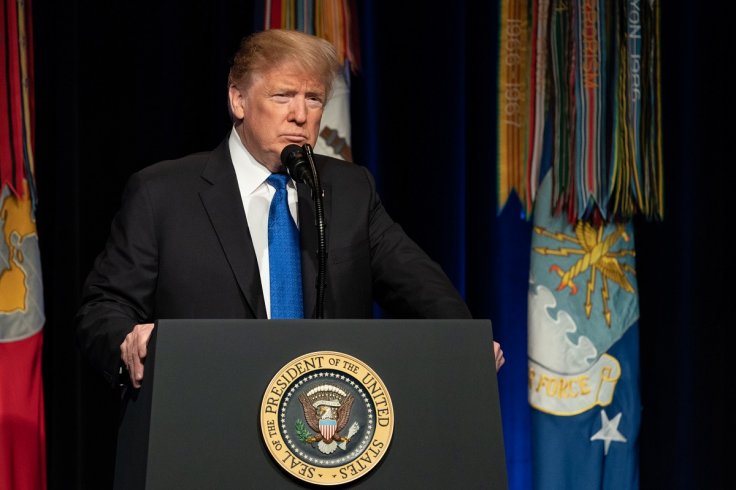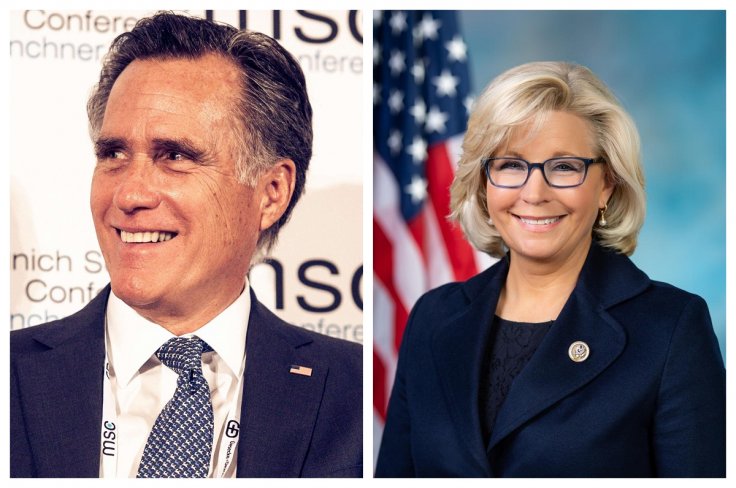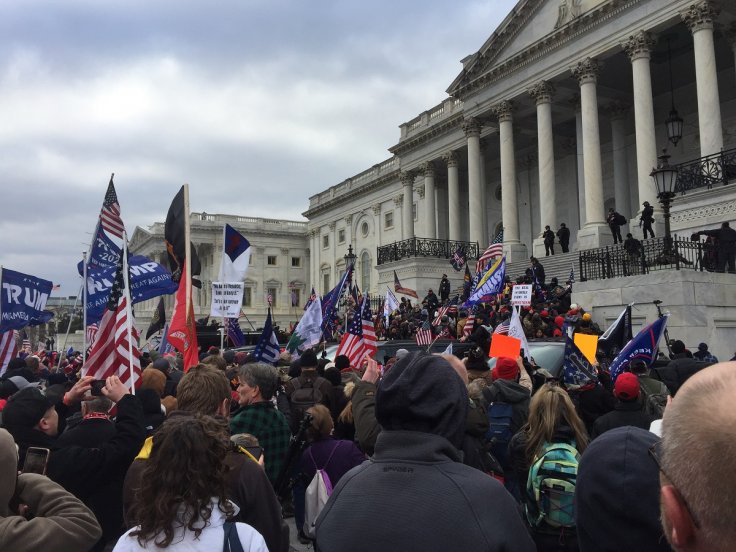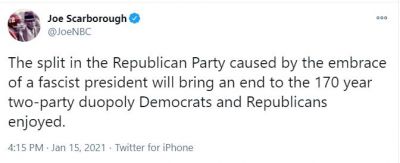For a long time, many Americans have lamented being forced to choose between two major parties in Presidential elections. It was most evident during the 2016 election when many undecided voters sealed the fate of America in favor of Donald Trump as they decided against voting for Hillary Clinton. Despite having a multi-party system, it all comes down to two candidates — a Republican and a Democrat — as other Presidential candidates don't get the spotlight.
Hence, many have called for a third meaningful party that could be viewed as an alternative to red and blue. However, things could change in the coming days, mainly for conservatives. With Trump at the helm of the Republican party for over four years, he has managed to show splits in the party with the backing of millions of supporters.
Split in Republican Party
The crack has been left wide open after the January 6 Capitol riot that resulted in five deaths and hundreds of arrests. Of the mob that stormed the Capitol, most were representing Trump and not the Republican party. The violence did not sit well with many of the senior leadership of the party including Senate Majority leader Mitch McConnell. Before that, other senior leaders like Mitt Romney (Utah), Liz Cheney (Wyoming) and former President George W Bush showed their displeasure at Trump, not to mention late John McCain's feud with the outgoing President.

However, McConnell still managed to thread together the party. But after the riot, the divide is clear — one that opposed the Congress' vote certification and the other that supported Trump. At Trump's second impeachment vote, 10 Republicans voted in favor of the Democrats. At the Senate, there could be few Republican senators voting for impeachment, further dividing the party.
"January 6 was the opening battle in the war for the soul of the Republican party in the post-Trump era. There is a populist element and a governing element, and I think the two groups will be struggling for control of the Republican Party going forward," Whit Ayers, President of Republican polling firm North Star Opinion Research, told VOA.
Will Trump Form His Own Party?
As per multiple reports, McConnell isn't too keen on Trump deciding what conservatives should head to. He has distanced himself from the President but he cannot overlook the majority. Trump has the support of tens of millions of conservatives who don't like liberal ideas that late McCain or his wife Cindy McCain bring to the table. They believe in Trump, who is rather a newcomer in the party, more than Romney and others. They want the current leadership to stand by Trump no matter the cost.

"I hope the current party dies. Republicans like Mitt Romney seem to despise voters like me just as much as Democrats do. They're cowards and they don't represent my interests," a Trump voter from North Carolina said.
Such voters represent the populist faction in the party, backed by evangelical Christians. They trust only those who show unwavering loyalty to Trump, like Texas senator Ted Cruz, Missouri senator Josh Hawley or newly-elected members of the House like Marjorie Taylor Greene (Georgia).
If a section of Republican senators votes against Trump and impeach him, the President would likely have his own backers who could lead to the formation of a conservative party that echoes his views. President's son, Donald Trump Jr, addressed the crowd on January 6 before the riot, saying, "This isn't their Republican Party anymore. This is Donald Trump's Republican Party."
Like Don Jr, many Republican voters have threatened to vote against party candidates, who did not support Trump, in the primaries. A Trump supporter from Texas said the Capitol protest-turned riots "marked the birth of a new Republican Party."

"The Republicans that stood by Trump and fought for democracy and freedom are apparent as are those who rode his coattails and who have now abandoned him. A new, modern Republican/Conservative party is evolving and it's one I am excited about," she said, adding that she would vote for Trump if he ran in 2024.
Traditional Republicans
However, there is one group of Republicans, although in minority, who don't support Trump's hostile takeover of the party. A good example is the Lincoln Project. A group of Republicans quit the party and decided to attack Trump through political ads, forming a Super PAC. It includes ardent Trump aide Kellyanne Conway's husband George Conway.
Stuart Stevens, a former Republican consultant and currently Lincoln Project's adviser, said the rift within the party is massive. He believes Trump is taking the party to an authoritarian leadership that is opposed to democracy and what the party stands for.
"I think it's just a straight-up red line. This is so much greater than any differences over tax policy or trade policy. It's a fundamental belief in whether or not you want to continue the American experiment. A large portion of the Republican Party has decided they are for democracy if that means they win, and they're against it if it means they lose. Which is to say, you don't believe in democracy," Stevens told NPR.







The split is even more real at the state level. Many Republicans including Georgia secretary of state Brad Raffensperger have opposed Trump's claim of election fraud. Other Republicans like including Jean Evans, executive director of the Missouri Republican Party, had to resign under pressure from GOP to back Trump.
"The demands that we stand up and support Trump and facilitate these sorts of actions became increasingly hostile and frightening. And then when I saw the president tweeting for everyone to come to DC on the 6th, I thought, 'What is he doing?'" Evans said.
However, despite the widening gaps within the Republican party, it will all depend on what Trump wants in the coming days. There is no doubt that Trump will have an overwhelming majority within the Republican party and if party leaders are to oppose him, they will probably be voted out in favor of Trump loyalists. Hence, it's either the Trump way or stay away! A split could be real depending on what Republican senators do during the impeachment hearing at the end of January.








